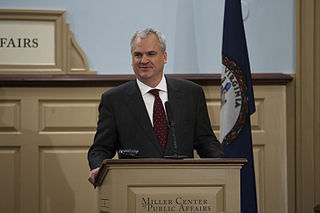A Quote by Douglas A. Blackmon
In every aspect and among almost every demographic, how American society digested and processed the long, dark chapter between the end of the Civil War and the beginning of the civil rights movement has been delusion.
Related Quotes
How blind to believe the civil rights movement ever ended. The civil rights movement never ends, and it never will. It has been marching since the beginning of time. Where Martin Luther King started is where Gandhi left off, and where he started, Abe Lincoln left off, and before that Whitfield all the way back to Moses. God has not moved. We have. But it is never too late. We are not at the mercy of these events. We can alter the course of history. We can stand against the dangerous arc of this story. But we need people who are willing to speak truth.
For many years now, I have been an outspoken supporter of civil and human rights for gay and lesbian people. Gays and lesbians stood up for civil rights in Montgomery, Selma, in Albany, Ga. and St. Augustine, Fla., and many other campaigns of the Civil Rights Movement. Many of these courageous men and women were fighting for my freedom at a time when they could find few voices for their own, and I salute their contributions.
In less than a century we experienced great movement. The youth movement! The labor movement! The civil rights movement! The peace movement! The solidarity movement! The women's movement! The disability movement! The disarmament movement! The gay rights movement! The environmental movement! Movement! Transformation! Is there any reason to believe we are done?






































